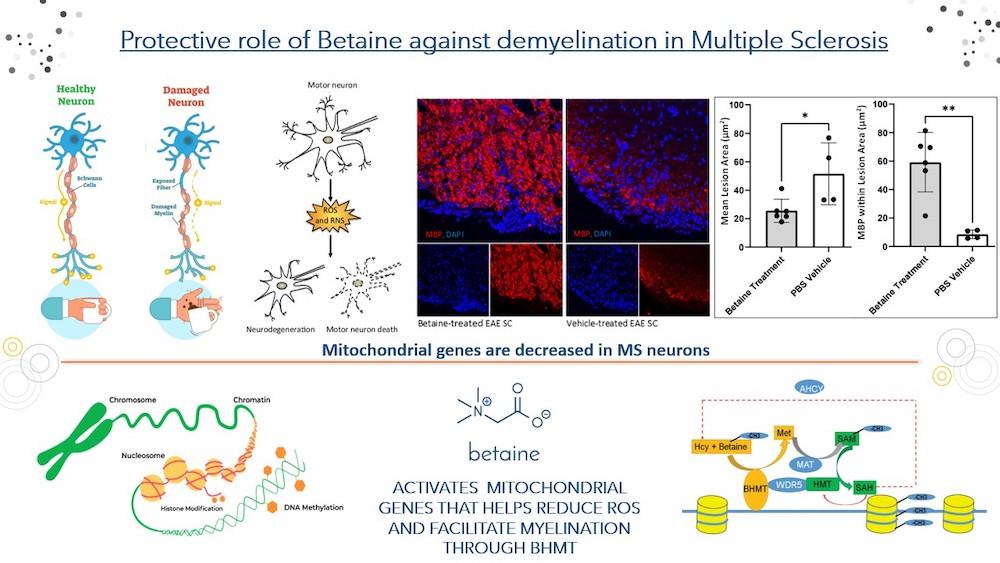Marwan Shalih Maraicar challenged himself to explain cellular research on multiple sclerosis to a non-specialized public, and he walked away with the People’s Choice Award.

Shalih Maraicar is a graduate researcher and Ph.D. student at Â鶹´«Ă˝, studying cellular biology and molecular genetics in the Department of Biological Sciences. In September, Shalih Maraicar won People’s Choice at Kent State’s fall 2023 Three Minute Thesis competition with his presentation “Protective Role of Betaine Against Demyelination in Multiple Sclerosis.”
“Molecular cellular biology is so complex, you need a lot of background data in order to just comprehend what it implies and what it signifies in terms of disease,” Shalih Maraicar said. “I wanted to see if I was capable of simplifying these complexities to a broad audience where nobody has an idea of what DNA and proteins even are.”
Shalih Maraicar broke down years of complex research into a digestible narrative with three minutes and a single presentation slide. Why approach such a difficult task? For the future of his work.
“I believe two of the problems in academia are underrecognition and underpay. People don't understand the significance and the reason why we need to spend millions of dollars on research just to find two mechanistic details between a disease,” Shalih Maraicar said. “Practicing trying to explain the idea and the importance behind our research puts me in a spot of development of myself, so I can help people understand difficult concepts and further my research when I am independent.”

Shalih Maraicar’s research at Kent State focuses primarily on multiple sclerosis, a disease that deteriorates the central nervous system and impairs vision, mobility and cognitive ability. In the lab with associate professor Jennifer McDonough, Ph.D., Shalih Maraicar is working specifically to prove the mind-body connection in relation to MS.
“The emotional well-being of the common people plays a lot of roles in neurodegenerative diseases, and I am trying to fully understand and elucidate how the emotional and mental well-being of people is equal and important to that of physical health,” Shalih Maraicar said. “I want to show people outright the connection between the emotional and the physical, like how those two are related through MS.”
Shalih Maraicar’s time at Kent State has given him the unique opportunity to work with state-of-the-art equipment. As he looks toward finishing his Ph.D., Shalih Maraicar is shifting his focus toward studying the Coherent Raman Scattering (CRS) Microscope, one of only four that exist in the United States.
“There is so much room to be explored in terms of what can be done with this microscopy,” Shalih Maraicar said. “I’m trying to fully understand the CRS microscopy and trying to squeeze as much juice as I can out of the cutting-edge technology that exists at Kent State.”
As Shalih Maraicar continues to pursue his Ph.D., he is keeping his focus on making cutting-edge science and technology understandable so researchers and non-specialized professionals can work hand-in-hand.

